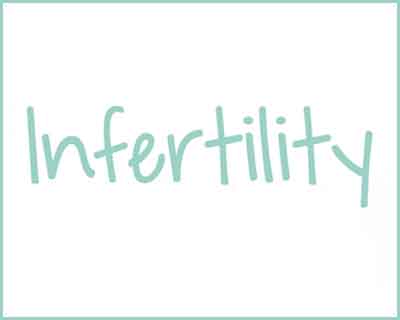- Home
- Editorial
- News
- Practice Guidelines
- Anesthesiology Guidelines
- Cancer Guidelines
- Cardiac Sciences Guidelines
- Critical Care Guidelines
- Dentistry Guidelines
- Dermatology Guidelines
- Diabetes and Endo Guidelines
- Diagnostics Guidelines
- ENT Guidelines
- Featured Practice Guidelines
- Gastroenterology Guidelines
- Geriatrics Guidelines
- Medicine Guidelines
- Nephrology Guidelines
- Neurosciences Guidelines
- Obs and Gynae Guidelines
- Ophthalmology Guidelines
- Orthopaedics Guidelines
- Paediatrics Guidelines
- Psychiatry Guidelines
- Pulmonology Guidelines
- Radiology Guidelines
- Surgery Guidelines
- Urology Guidelines
Infertile women at higher risk of cancer, absolute risk small

USA: Infertility is associated with a higher risk of developing cancer compared to a group of non-infertile women, finds a study of over 64,000 women of childbearing age in the U.S, although the absolute risk is very low at just 2%.
“We do not know the causes of the increase in cancer that we found in this study, whether it might be infertility itself, the causes of infertility, or the infertility treatment. We can only show there is an association between them. In the future, we hope that we will be able to understand why infertile women are at higher risk of cancer; for example, by identifying a common, underlying mechanism that can cause cancer and infertility," said Dr. Murugappan.
Key Findings:
- Infertile women had an overall higher risk of developing cancer compared to non-infertile women (2.0 versus 1.7%).
- The risk of uterine cancer (0.10 versus 0.06%), ovarian cancer (0.14 versus 0.09%), lung cancer (0.21 versus 0.21%), thyroid cancer (0.21 versus 0.16%), leukemia (0.10 versus 0.06%) and liver and gallbladder cancer (0.05 versus 0.03%) were higher in infertile women compared to non-infertile women.
- Among the infertile women, 22,024 (34%) had at least one baby during the period studied, and 626,532 (20%) of women in the control group gave birth. The absolute risk of cancer was one in 56 infertile women and one in 86 women in the control group.
- Breast cancer was the most common cancer in both groups.
- In a subgroup analysis of women in each cohort who became pregnant and had a delivery during enrollment, the risk of uterine and ovarian cancer were similar between infertile and non-infertile women.
- In a subgroup analysis excluding women with PCOS and endometriosis from both cohorts, the risk of uterine cancer was similar between infertile and non-infertile women.
Dr. Murugappan and her colleagues analyzed data from 64,345 women who had been identified as being infertile by diagnosis, testing or treatment in the Clinformatics® Data Mart database between 2003 and 2016. The database contained a geographically diverse group of patients, across 50 US states, although the majority of them were Caucasian. They compared them with 3,128,345 women who were not infertile and who were seeking routine gynecological care. The women were in their 30s and the researchers followed their progress for an average of nearly four years.
“The low overall incidence of cancer among these women means that one in 49 infertile women would develop cancer during the follow-up period compared to one in 59 women in the women who were not infertile, said senior author of the paper, Associate Professor Michael Eisenberg from Stanford University School of Medicine.
Looking at the risk of particular cancers, they found a slightly higher risk of hormone-driven cancers of the ovary and uterus among the infertile women, although the risk of breast cancer was similar between the two groups. They also found a slightly higher risk of cancers that were not driven by hormones among the infertile women, including lung, thyroid, liver and gallbladder cancers and leukemia. “While several of these associations were significant, it is important to note that the absolute increases in risk were modest,” said Dr. Murugappan.
“Although the overall incidence of cancer is low for all women in the cohort, we identify an association between infertility and a higher risk of cancer compared to a group of non-infertile women. We need to carry out further research with longer follow-up to determine what factors may be influencing the long-term risk of cancer for infertile women," concluded the authors.
For more details click on the link: https://doi.org/10.1093/humrep/dez018

Disclaimer: This site is primarily intended for healthcare professionals. Any content/information on this website does not replace the advice of medical and/or health professionals and should not be construed as medical/diagnostic advice/endorsement or prescription. Use of this site is subject to our terms of use, privacy policy, advertisement policy. © 2020 Minerva Medical Treatment Pvt Ltd